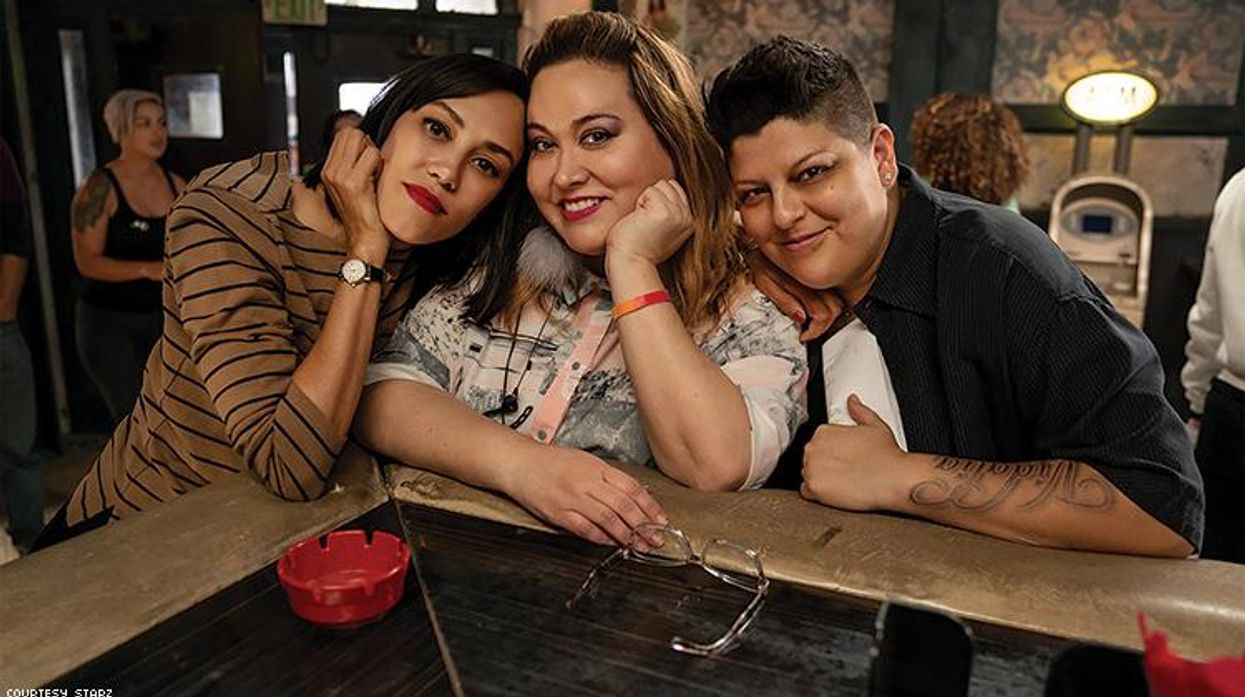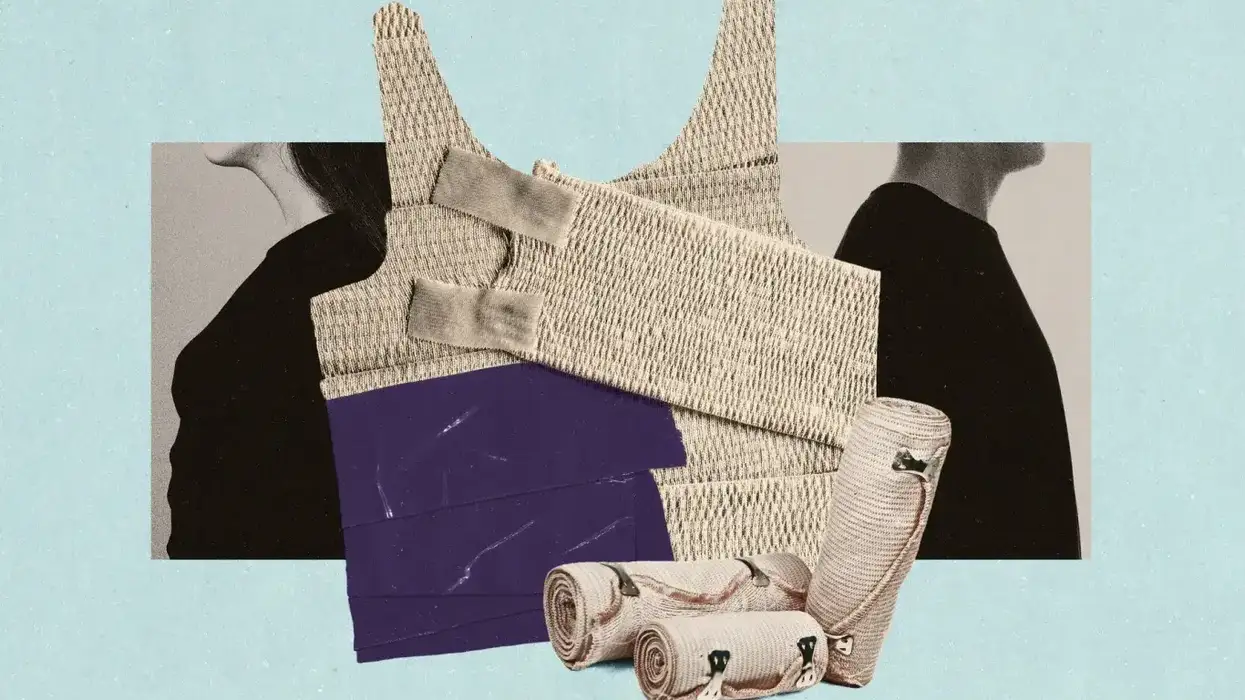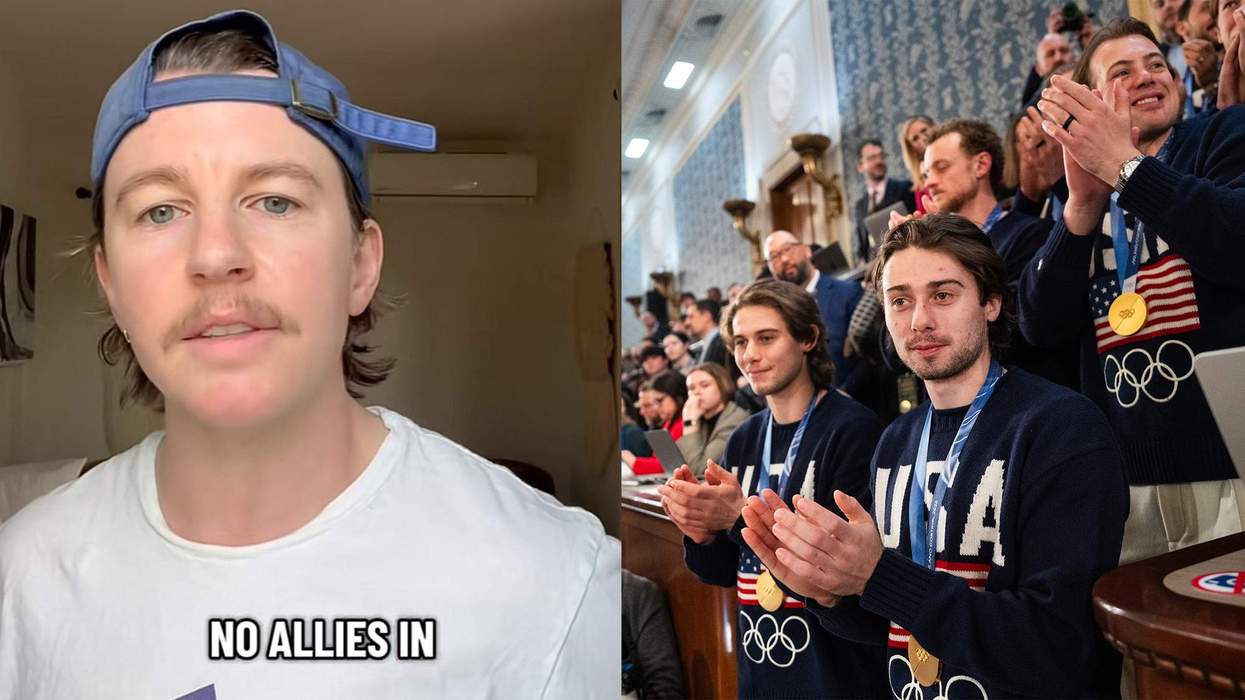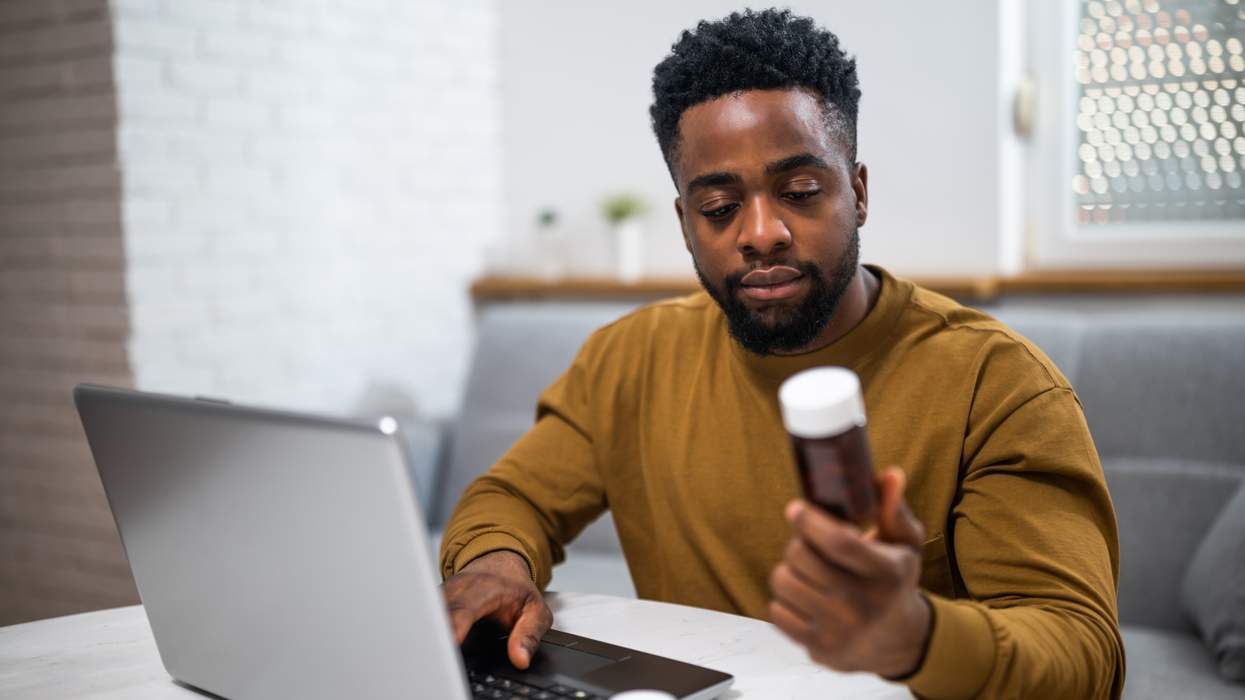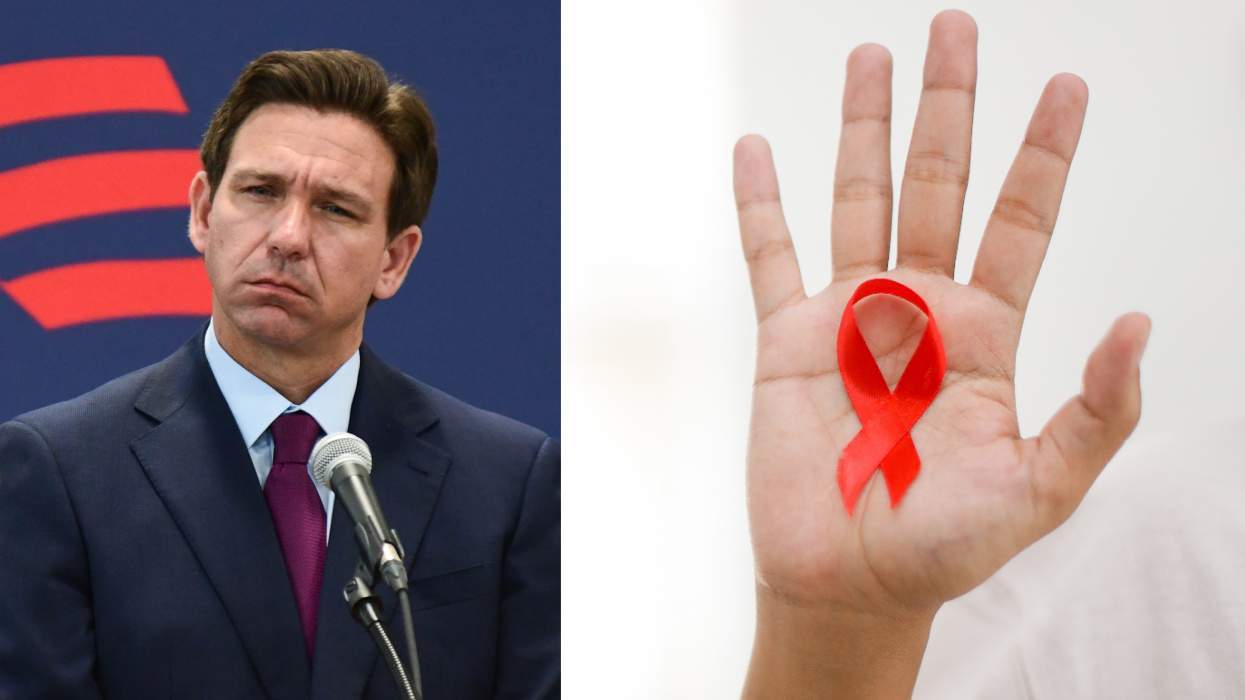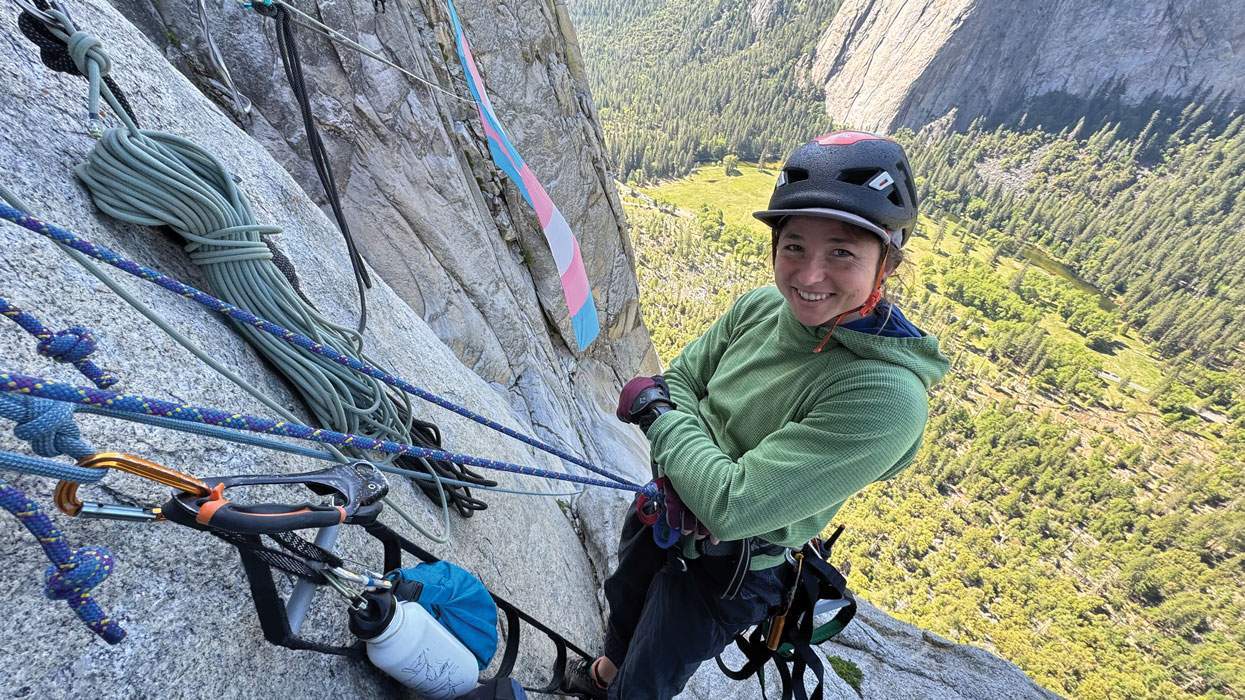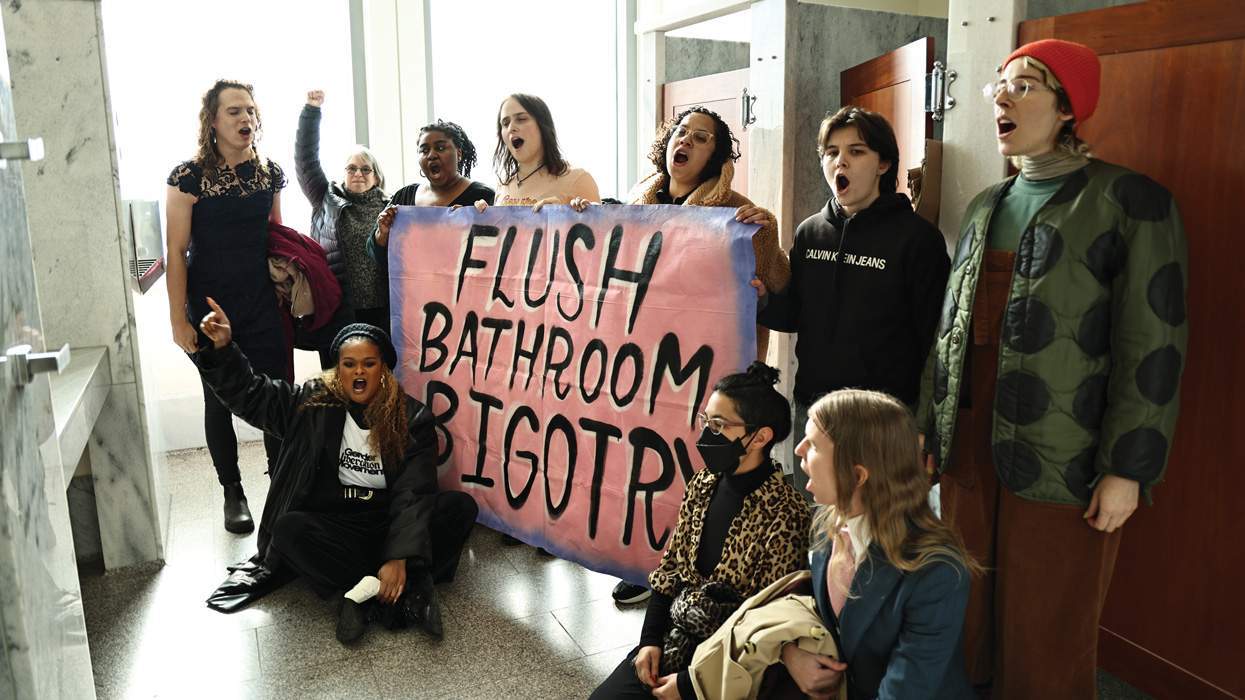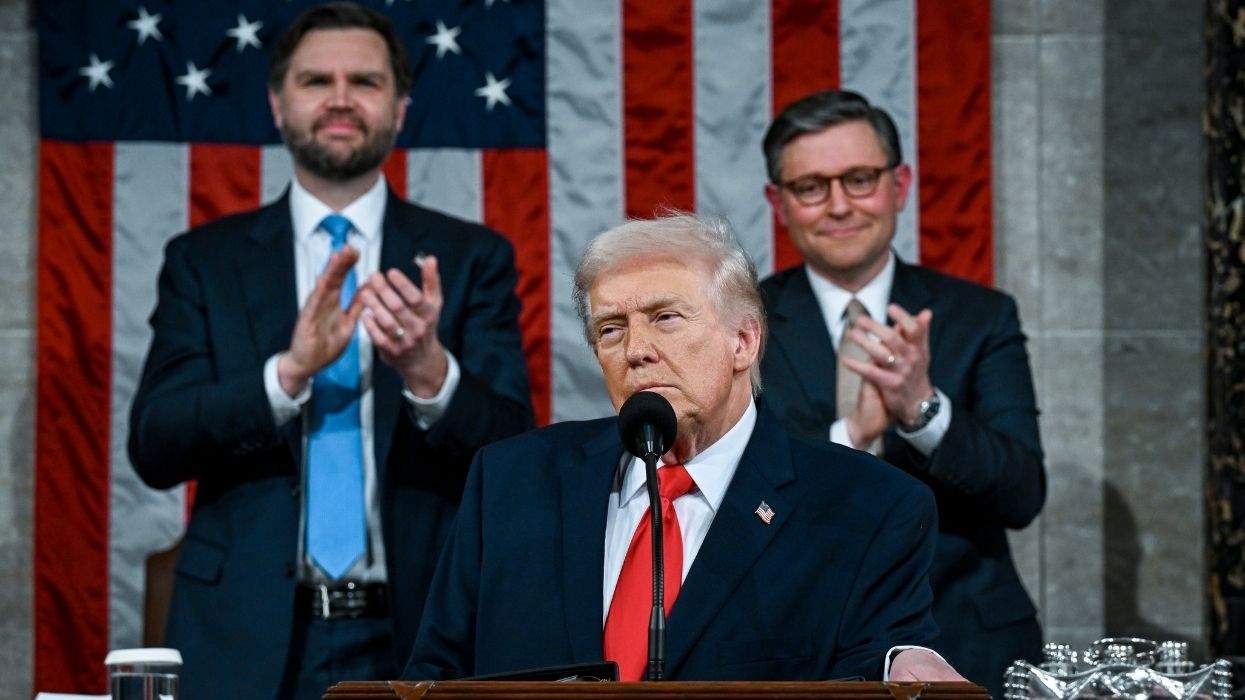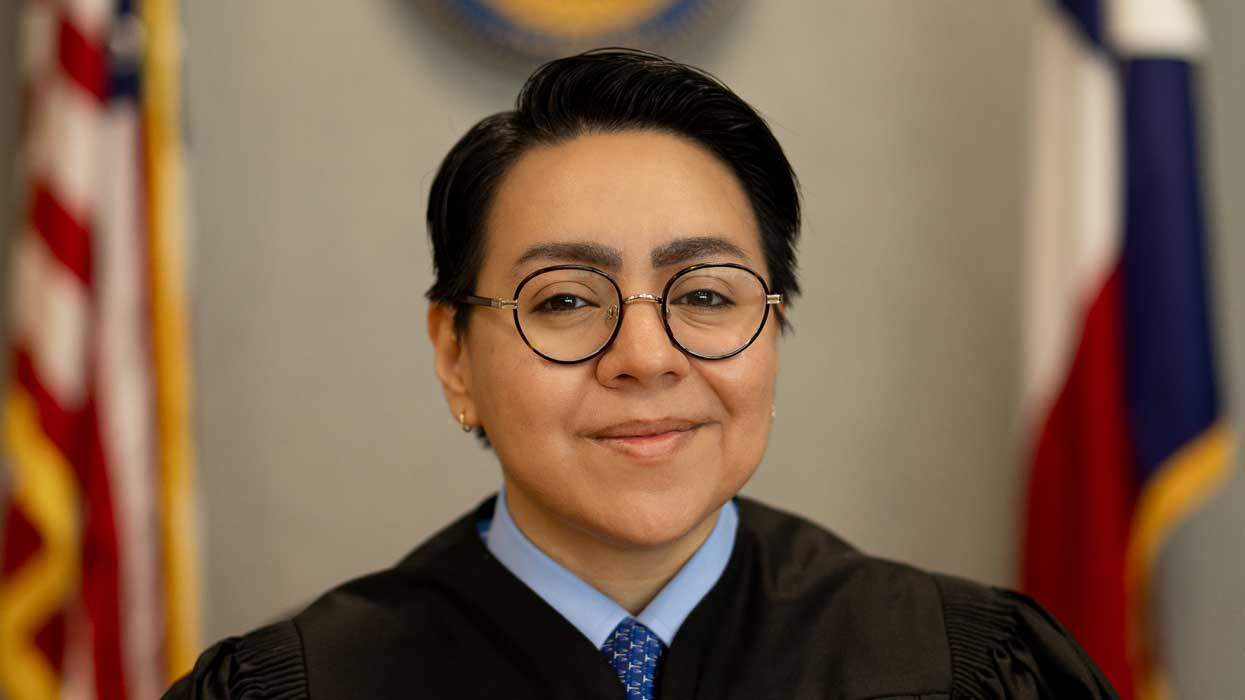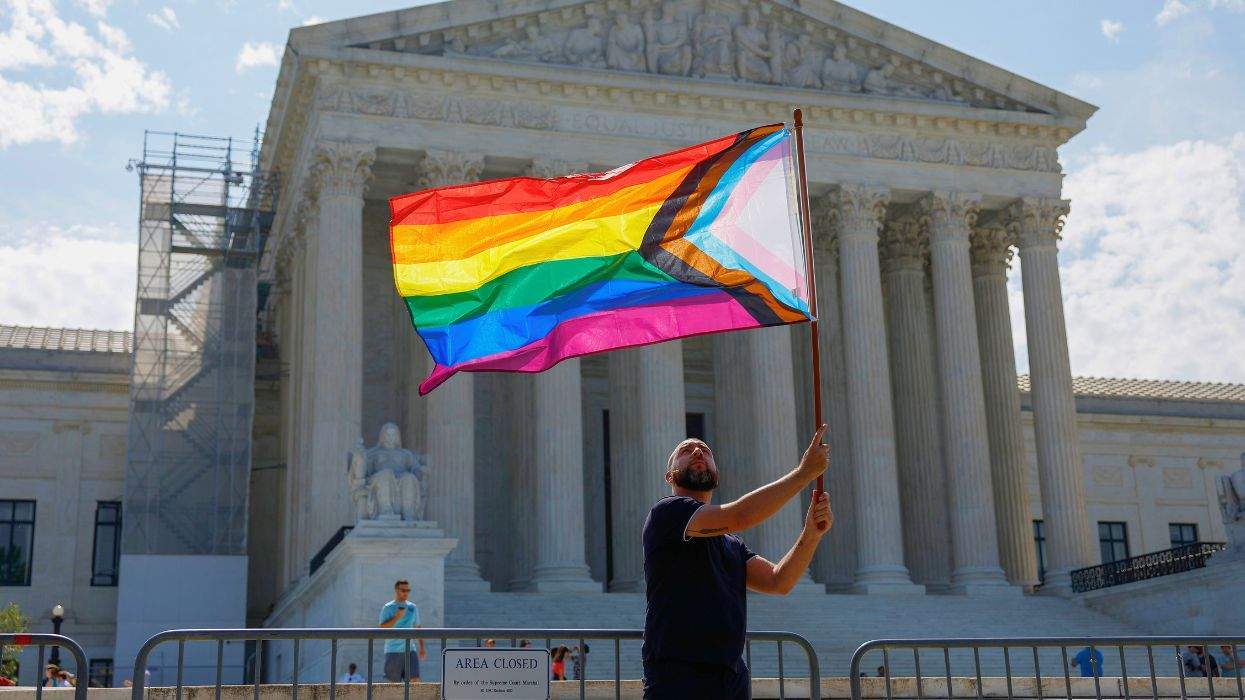The Latinx series Vida tells the story of disparate sisters searching for a way to run their mother Vidalia's failing bar and apartment building in the wake of her death. At the start of season 2, Vidalia's (a.k.a. Vida's) widow, Eddy, is broken and battered from a beatdown she received because she's gay. As she recovers, Eddy is forced to cope with an uncomfortable reliance on her deceased wife's daughters, Emma (Mishel Prada) and Lyn (Melissa Barrera), for financial and emotional support.
The Starz series, from queer Latinx creator Tanya Saracho (who staffed her writers' room primarily with women, LGBTQ, and Latinx people), is modern television that challenges the landscape altogether. Yet, at its heart, Vida tells a universal story of found family that's imperative to LGBTQ people who continually seek out others like themselves. In the show, Vida exiled Emma for being queer only to enter into a relationship with a woman later in life herself. But Ser Anzoategui, the nonbinary actor who plays the old-school butch lesbian Eddy, says they created a backstory for their character that's not unlike Emma's -- intertwining queer identity, religion, and Latinx culture.
"I totally relate to the Emma character because of the rejection of the family, being sent away... because of the religious background. I played Eddy as being rejected from the family as young when they came out," Anzoategui says. "That's the reality a lot of people are still going through coming out or accepting themselves and going through that within their own families. They may have the religious Catholic upbringing, they may be raised Jehovah's Witnesses.... [Religion] is a huge component of the stigma around gender and sexuality."
Because Vida's authenticity is built into the DNA of the show, as Saracho envisioned it, the series deftly avoids becoming monolithic about the social issues it challenges. A scene in the show's first season depicts a grieving Eddy finding solace in the prayers of deeply Catholic women in the community. Anzoategui credits Eddy's experience of being a masculine-of-center queer person as having contributed to resilience that includes openness, even to those who may not fully accept her.
"It's a beautiful thing to play in Eddy -- that you can rise above hate," Anzoategui says. "To see Eddy with religious women, praying and doing the rosary even though she doesn't know the words. It shows how maybe she wasn't really accepted in Catholic settings because she doesn't know the rosary. But she still loves them and she's still embracing them."
Beyond relating to Emma's storyline on the show, Anzoategui, a seasoned performer who's acted on stage and in TV (East Los High, Shameless, and Better Things), says they were thrilled the new season included a scene that refuses to give queer people who can't accept identities outside of their own a pass. The episode has Emma attending the wedding of two men with her on-again-off-again hookup Cruz (Maria-Elena Laas) where the queer women at their table question Emma's identity simply because she refuses to label it.
Anzoategui says they too have been policed by members of the LGBTQ community for being nonbinary and says that needs to change.
"So much of what's happened in our community has been -- I'm sure in different generations -- this policing, whether it's about sexuality or gender. It's so right on," Anzoategui says of the episode. They had an experience in which an older trans person they respected in the LGBTQ community challenged their gender identity. "I want to get away from speaking so much about focusing on body parts," they say now.
"We're beyond body parts," Anzoategui explains. "There's this conditioning and also their own experience. But for that [conversation about body parts] to happen was really a reality check of how much more we have left to do intergenerationally and intersectionally."
